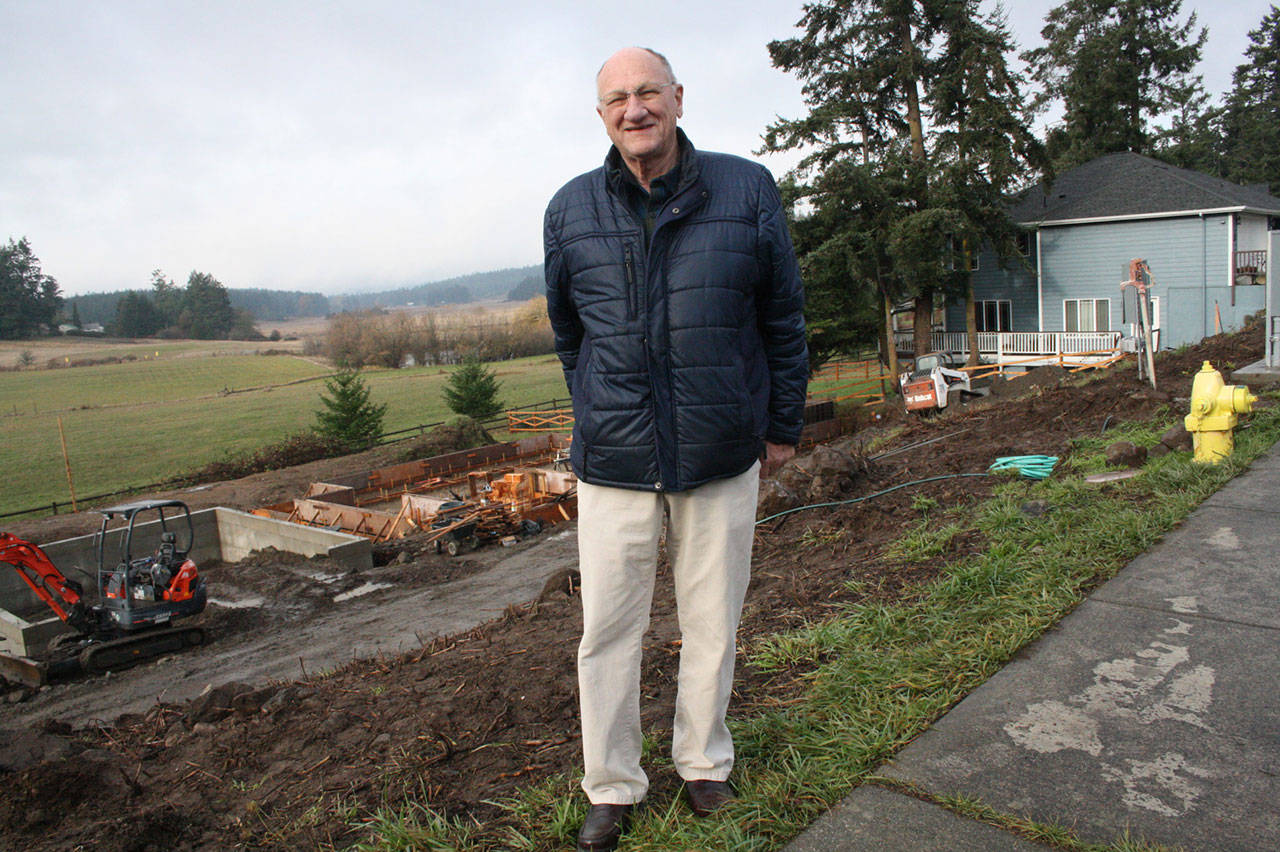With a love of woodworking, and enthralled with the concept of building his own home, Bill Gendron and his wife moved to San Juan Island more than 10 years ago.
He not only built his own home but his daughter’s house as well. It wasn’t surprising that he found himself immersed in home building.
“He is a force,” said John Campbell, Homes for Islanders board member, explaining that he met Bill Gendron when the affordable homes organization was just a fledgling group.
“His wife, Marni, was a friend of another board member, Mary Stone. That first meeting Marni said, ‘You don’t want me, you want my husband,’” Campbell laughed. “It turned out she was right in that we didn’t have the energy or force to create the organization. Bill did.”
It was Gendron, Campbell said, who was instrumental in filling out the Homes for Islanders first grant. His passion for creating a model to help people help themselves acquire their own home is the underlying principle of what the nonprofit is today.
“It’s hard work. The homeowners poured all this concrete Saturday, in the rain,” Gendron said on Wednesday, Nov. 14, pointing to the house foundations on Kelsando Circle. “But when it’s done, they feel a tremendous sense of accomplishment.”
Gendron has a strong background in management as well as accounting. For years he worked for the aircraft company McDonnell Douglas, including through the merger with Boeing. In an effort to learn and improve their business model, Gendron was sent to Japan.
“The culture taught me about what it means to have influence and accountability,” Gendron said.
For example, kaizen, he explained, is a Japanese business philosophy that meticulously measures the process of a company or project for productivity and quality control. If time, energy or materials are wasted, it will be noticed and changed.
“We don’t really pay attention to that here in the states; we are just a bunch of cowboys,” he laughed. “However, it might help our productivity if we did.”
He also learned a great deal about team building and bringing diverse groups of people together in order to get a job done.
The first thing a group coordinator should do, according to Gendron, is figure out the skillset of each individual in the group. Then, make sure they are educated on each specific detail of the project and what commitment is required of them.
For example, homeowners under Homes for Islanders undergo a 13-session class detailing what is required of them for their loan and construction of their homes. Applicants must commit to approximately 14 months building the houses, including through the winter season. These future homeowners don’t work on their own house, but their neighbors’, which means each project becomes a neighborhood effort.
The nonprofit is currently working on a development in Fox Hall that will create 16 affordable homes. These particular houses, in order to match the neighborhood regulations, are larger than previous projects Homes for Islanders has done, which, Gendron says, has been a challenge. For larger low-income families, however, these three or four-bedroom houses are a blessing.
The affordable home crisis is not the only issue Gendron has been involved with. He served on the board of Paideia, a private K-8 grade elementary school in Friday Harbor, with approximately 40 students enrolled.
“The function Paideia serves is that they are really good at giving children who require more attention smaller class sizes,” he said.
He is also on the board of the Friday Harbor Basketball Association, which supports basketball on all levels. They assisted in finding funding to send the Friday Harbor High School teams to Juneau, Alaska, for a tournament last year.
Gendron also has his fingers crossed that someone reopens a convalescent center on the island. A friend of his told him recently they had to travel to Port Townsend to see their dad because they could not find a place for him on the island. Finding people to work at such a facility can also be challenging, especially if there are no homes. Which loops back to San Juan County’s affordable housing crisis.
“Housing brings stability. If you want young people to live here, you have to provide housing,” Gendron said.




